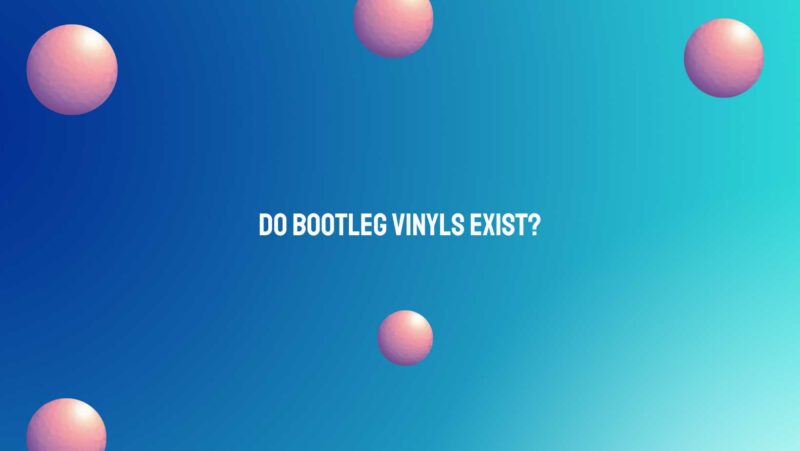Vinyl records have experienced a remarkable resurgence in popularity over the past few years, attracting both collectors and music enthusiasts alike. This renewed interest in vinyl records has not only led to a revival of classic albums but has also given rise to a thriving market for new releases on vinyl. However, the vinyl industry has its dark corners, one of which is the existence of bootleg vinyl records. In this article, we will explore the world of bootleg vinyl records, examining what they are, why they exist, and their impact on the music industry.
What Are Bootleg Vinyl Records?
Bootleg vinyl records, often referred to simply as “bootlegs,” are unauthorized or illegal copies of music albums or recordings, typically pressed onto vinyl discs. These records are produced and distributed without the permission of the copyright holders, such as the artists, record labels, or music publishers. Bootlegs can include live concert recordings, rare studio outtakes, unreleased material, and sometimes even counterfeit copies of officially released albums.
The Origins of Bootleg Vinyl Records
Bootleg vinyl records have a long history, dating back to the early days of recorded music. In the 20th century, bootleggers would often record live concerts using portable equipment or obtain unreleased studio recordings and then press these recordings onto vinyl. These bootlegs were typically sold through underground networks or in flea markets and record shops.
One of the most famous early bootleg vinyl records is Bob Dylan’s “Great White Wonder,” a double album featuring unreleased tracks and alternate versions of songs. It was released in 1969 and became a collector’s item.
Reasons for the Existence of Bootlegs
Several factors have contributed to the existence of bootleg vinyl records:
- Demand for Unreleased Material: Fans of artists often crave unreleased or rare material that is not available through official channels. Bootlegs satisfy this demand by providing access to live recordings, demos, and alternate versions that may never see an official release.
- Historical Documentation: Bootlegs can serve as important historical documents, capturing moments in music history that might otherwise be lost. Live concert bootlegs, for example, can preserve iconic performances and the energy of a particular era.
- Economic Incentives: Bootleggers may see a financial opportunity in producing and selling unauthorized recordings, especially if there is a significant demand for the material. Collectors are often willing to pay a premium for rare and exclusive records.
- Legal and Ethical Gray Areas: The legality of bootleg records varies from country to country and can be complex. Some collectors argue that bootlegs fall into a legal gray area, especially when they involve unreleased material or recordings from an artist’s earlier, less well-known days.
The Impact on the Music Industry
The existence of bootleg vinyl records has raised several issues for the music industry:
- Copyright Infringement: Bootlegging is a form of copyright infringement and is illegal in many jurisdictions. Copyright holders have the right to control the reproduction and distribution of their music, and bootlegs undermine these rights.
- Loss of Revenue: Bootlegs can divert potential revenue away from artists, record labels, and music publishers. When fans purchase bootleg records instead of official releases, it reduces the income that would support the creation of new music.
- Quality Concerns: Bootlegs vary in quality, with some featuring subpar sound and packaging. This can tarnish an artist’s reputation if fans unknowingly purchase low-quality bootlegs thinking they are official releases.
- Cultural Significance: On the other hand, some argue that bootlegs have cultural significance and should be preserved as part of music history. They can provide insights into an artist’s creative process, evolution, and live performances.
Enforcement and Legal Actions
The music industry and copyright holders have taken various measures to combat bootlegging. These actions include cease-and-desist letters, legal action against bootleggers, and efforts to remove bootleg listings from online marketplaces. Despite these efforts, bootlegs continue to exist, albeit in smaller quantities than in the past.
Conclusion
Bootleg vinyl records remain a controversial and intriguing aspect of the music industry. While they are often viewed as unauthorized copies that infringe upon copyright holders’ rights, they also hold cultural and historical value for music enthusiasts. Whether one sees them as piracy or as a means of preserving musical history, the existence of bootleg vinyl records is a testament to the enduring allure of analog music formats and the complex relationship between art, commerce, and fandom.


